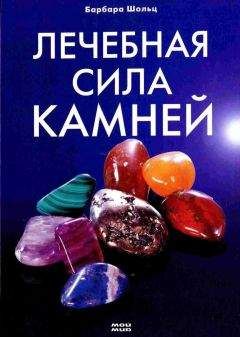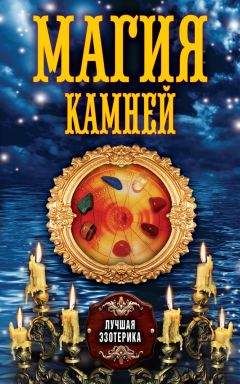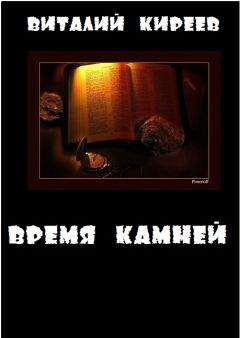Juliet Marillier - Hearts Blood
“Dauntless in courage . . . united in will,” sang Cathaír, and other voices joined in from outside the stillroom, men’s deep tones, women’s higher ones. “Swing your swords proudly, hold your heads high . . .”
I turned the key; I opened the door.
“Books,” said Cathaír, breaking off his song. “Here, let me shine the light for you.”
Two books, one the same as Irial’s notebooks, the other even smaller. I opened up the first on the workbench and saw the familiar spidery script and delicately rendered illustrations. “This is it,” I said, slipping the other book into a pocket of Gearróg’s cloak. Quickly, quickly . . .I began to turn the pages. Some kind of journal entry, not related to herbs at all; a poultice for earache in children; a discussion of various herbs that might be used to alleviate grief . . .
I found it about halfway through. The poison brewed with precise quantities of dragon-claw berries, ground and steeped in a strong mead, then strained through gauze and left to stand for seven days. The onset is rapid, Irial had written. First comes a graying of the skin, followed by shortness of breath, loss of speech, then unconsciousness leading to death in little more than an hour.The antidote is . . .
“Heart’s blood,” I muttered as I ran across the garden with the book in one hand. Folk dodged out of my way—many had been waiting as I searched. “I should have guessed. Curse Muirne! Cathaír, I need someone who can help me brew this.”
I reached the corner where the herb grew. I fell to my knees; Cathaír held up the lantern.The circle of light bathed the soft gray-green leaves of the comfrey bush and showed, beneath it, the dried and withered remnants of the heart’s blood flowers. Only two. One handful of finely chopped petals, Irial had written. As fresh as possible.
“It has to work, this must be enough,” I muttered, reaching across to pluck my pathetic harvest. Around the garden the song rang out, more confident now: “Brothers together, we live and we die!” Rioghan had tutored them well. He had taught them hope in the face of despair.
“I will help you.” It was the wise woman of the host, she with the moon tattoo on her brow. Her features were calm, but I saw pain in her eyes; the frenzy, it seemed, touched each and every one of them.“You need other herbs?”
“Dried flowers of lavender—there’s a bunch hanging in the stillroom. I’ll run ahead to the kitchen.” Back into the library, the quicker way, through the darkened space and out the other door, surprising the old warrior, Broc, who stood roaring out the song with his hands gripped tight as ancient ivy around his spear. Fianchu barking, racing ahead of me as if he knew just what had to be done. Cathaír coming behind me, desperate to keep me safe, fighting the pain.The kitchen full of folk, the fire glowing, Orna’s friend Sionnach lifting a steaming kettle. Orna herself in the doorway, and coming in after her the wise woman, a sheaf of dried lavender in her hands. She had been quick.
“One of you chop this as finely as you can. One of you shred the lavender blooms. Orna, we need . . .”The look on her face halted me.
“He’s still alive,” Orna said quickly. “But we haven’t long. What is it we’re brewing?”
“Life, I hope. It’s an antidote to what I think he was given—simple enough, just these two plants made into a tea.”
“Have you a precise measure for this?” asked the woman of the host. “Heart’s blood is a perilous herb. Give him too much and it will carry him off forever.”
“Two cups of water, just off the boil.” The remedy was burned into my mind; I could see every stroke of Irial’s writing.“One handful of finely chopped heart’s blood petals. Two handfuls of lavender.” I looked at the scant harvest of heart’s blood. “I don’t know if this is enough.” Terror welled up in me. That Anluan should die for want of a single flower . . .
“Half quantities,” said Orna, taking a knife from the bench and coming up to the table. “You can’t expect a man barely conscious to swallow two whole cups of this stuff. It should be enough, don’t you think?” She glanced at the spectral woman.
“It will suffice, I believe.”
“Let’s do this, then. Sionnach, don’t put that kettle back on—didn’t you hear what Caitrin said? Just off the boil.”
“Did Muirne come?” I asked shakily, realizing the task had been taken out of my hands. Orna chopped; the wise woman measured; Sionnach poured the hot water into the jug. Outside the singing went on. I hoped the sound would not carry as far as the Norman encampment, or the surprise attack would be no surprise at all.
“Wretched tune,” muttered Orna, but her tone was good-natured.“I’ll be hearing it in my sleep. I can even hear Tomas singing. Fair enough, I suppose; we’re one and the same now. Men of the hill. And women.”
“She did not come,” the ghostly woman said. “The girl in the veil. If you achieve this, if you cure him, she will fear you more than ever.”
“Fear?” I echoed, started. “Muirne fear me?” But there was no time to ask more. Eichri was at the door.
“They’re saying you found it. The antidote. Is it true?” He sounded desperate; a faint rattling sound told me he was trembling.
“We’re bringing it now,” I said. “He only has to hold on a few moments more.” Dear God, don’t take him from me . . .
“You’d want to make haste,” Eichri said.
The wise woman passed the jug into my hands, carefully. It was so hot I almost dropped it. Orna snatched a cleaning cloth from a peg and helped me wrap it around the jug. “By the time we reach the tower,” she said, “it will be cool enough for him to drink.”
Sionnach had fetched a clean cup. We walked out of the house and across the courtyard, and as we passed the song dwindled and faltered and ceased. Eyes were on us from all around, the stricken eyes of those who still battled the enemy that sought to poison their thoughts; the frightened eyes of ordinary folk whose world had changed forever. I wanted to run, to fly, to be at Anluan’s side this moment, but I held the jug, his salvation within, and I walked as if on eggshells, step by careful step.
At the entry to the south tower, Gearróg stood strong, though I saw the tension in his body and the strain of resistance on his face.The frenzy tried him hard, as before. He was muttering to himself, and as I passed him I heard him say: “God, don’t let Lord Anluan die. They say you’ll listen to a sinner’s prayer. Hear mine tonight, will you? We’re all in the balance here.”
Then I was in the chamber and by Anluan’s bedside. He lay in Olcan’s steady arms, his mouth slightly open, his lids closed, his breath whistling like the wind in reeds. Alive; by all the saints, still alive. My hands were shaking so hard I could not pour the infusion from jug to cup, so Orna did it for me, but I was the one who held the vessel to his lips.
“Anluan,” I said with tears running down my cheeks,“you must drink this. Just a sip is enough to start with. Anluan, please try.” It was plain that he could not hear me.The precious draft would spill from his unconscious mouth to soak into the blankets and be lost.
“Dip the cloth.”The calm voice was that of the wise woman.“Squeeze a little into his mouth. Feed him as you would a motherless babe.”
I soaked up a little of the infusion in the cloth she had given me; brought it carefully up. To waste even a drop might be to lose this battle. Olcan tipped Anluan’s head back slightly and I squeezed the tea into his mouth. Drink it. Drink it.
He swallowed. I released the breath I had been holding and dipped the cloth again. And again.The chamber was so still I thought I could hear my heart beating. Another few drops; Anluan’s eyelids flickered. He gasped for air, tensed, turned his head.
“Use the cup now,” said the wise woman. “He’ll soon come back to full awareness. Go slowly.”
“Drink, dear one,” I said, laying one hand on Anluan’s neck and tilting the cup against his lips.
He drank; stopped to suck in air; drank again, thirstily. His eyes opened, blue as the sky on the loveliest day of summer and utterly confused. “What . . .” he managed, then ran out of breath.
“Hush, don’t try to talk.” I set down the empty cup, turning my head away so he would not see the tears pouring down my cheeks.“It’s all right, you’re all right now.Take your time.”
“Caitrin—Olcan—what—?”Anluan turned his head one way and the other; he put a hand to his brow, tried to sit up, collapsed back against Olcan’s supporting arm. “What happened to me? Did I dream . . .” A silence, then I felt his hand brush against me where I sat bent over on the edge of the bed. “Caitrin, you’re crying. What . . . what is this?” His voice was a little stronger, and when I turned to look, there was a slight flush of color in his wan cheeks.
“Who’d have imagined it?” said Orna. “Heart’s blood.Thought it was only good for rich folk’s ink. My lord,” she was suddenly shy, her tone diffident, “you’ve been terribly sick. Near death. Caitrin brought you back.”
“Sick?” Anluan frowned, his eyes moving over the empty cup in my hand and the empty jug the wise woman was holding.“But . . .” He cleared his throat. “I dreamed . . . Caitrin, are you really here?”
“Yes,” I said, a blush rising to my face.
“That was real . . . you and I . . .”
The blush deepened; my cheeks were on fire. “It was,” I said. “And so am I. Anluan, you must lie down and rest; you’ve been very ill.”
“No . . .” He was trying to sit up again, his breathing labored. “No, there’s no time for this . . . I must . . . God, I can’t catch my breath . . . Tell me what happened . . .”
I explained it as calmly as I could, while he worked on his breathing, and Olcan supported him until at last he could manage to sit on his own. I said nothing of Muirne, only told him about the poison, and that it was the same one that had killed his father. I explained that we had found the antidote, but not where. I did not speak of the little hoard of trophies I had found.
“Poison,” Anluan said, his tone flat. “Now, on the brink of the battle, poison . . .”
Before I could say anything more, the tall, red-cloaked figure of Rioghan appeared in the doorway with Cathaír behind him. “God be praised,” the councillor breathed, his dark eyes on Anluan. He turned to face the courtyard, and no doubt he wanted to shout in a voice like a war trumpet, but he held his jubilant announcement quiet: “He’s safe! Lord Anluan is well again!”
Well? Hardly that, I thought, clutching Anluan’s hand in mine. I glanced over at Rioghan, guessing what was coming.
“My lord,” Rioghan said, walking in and falling onto one knee beside the bed in courtly fashion,“it’s close to first light.We can’t do this without you.”
“He can’t go now!” I protested. “You can’t ask this of him!” A few heartbeats ago Anluan had been lying there close to death. He looked barely able to stand up on his own. He couldn’t possibly lead an army into battle. “Can’t the venture be delayed until tomorrow?”
“It must be today, Caitrin,” Rioghan said. “The plan is in place. We go down the hill before dawn. Half of our force manifests in the Norman camp and engages them. The other half waits under the concealment of the trees. When we’ve created general chaos in the enemy ranks, Magnus brings in the war bands from Silverlake and Whiteshore, under their own leaders. The Normans are driven back up into the woods and into the waiting trap. It’s too late to withdraw Magnus’s reinforcements now; they’ve ridden out from their own territories to take this risk for us, and we can’t send out a messenger without alerting the enemy. We’re hoping Eichri’s sudden dramatic appearance to rescue you didn’t do that.The mist will have helped; he doesn’t think many saw him. With luck, those who did may still be arguing about whether you really were carried off by a spectral rider or whether they imagined the whole thing. My lord, you have time to put on your battle gear. No more than that. Cathaír and I will help you.”
Anluan rose to his feet. He swayed, then straightened. “I can do this, Caitrin,” he said, setting his jaw.
I struggled to find the strength to match him. “I know you can. I’ll leave you to get ready now.” I glanced around the chamber, where all of them stood quiet: stalwart Olcan; Rioghan with his jaw tight, battling the memory of failure; Eichri in his brown robe; Orna and Sionnach; the woman with the graven moon on her calm brow. Cathaír moved to the storage chest to take out various items of clothing: a leather breast-piece like the one Magnus wore, a helm, a silver-buckled belt.“I’m proud of you, so proud it breaks my heart. Come back safely.” I wanted to kiss Anluan properly, but this was not the time. At this moment, standing there a little crooked and clutching a sheet awkwardly in front of him to conceal his nakedness, he was every bit a chieftain. I stood on tiptoe, put my hands on his shoulders and laid my cheek against his. “I love you,” I whispered.
“I love you, Caitrin.”Anluan’s was no whisper, but a declaration, strong and proud. “Gearróg must stay with you until I return. Several of the men from the settlement will be up here as well, and we have a small force posted atop the wall. Take no risks.” He was shrugging on a shirt Cathaír held ready. “Caitrin, who could have put poison in the cup?”
As Anluan bent over to pull on a pair of trousers, Rioghan caught my eye. He gave the slightest shake of his head, and I swallowed the words I had been about to say. This was not the time to speak of Aislinn, and of what now seemed not suspicion, but reality. “We can talk about it later,” I said. “May God watch over you and shield you from harm.”
chapter fourteen
Ehey assembled in the courtyard not long after. Still clad in my borrowed shirt and cloak, I stood on the steps with Orna on one side and a watchful Gearróg on the other.Around us were gathered the women and children of the host, and the women and children of the settlement, a far smaller group, along with a few very old men, those too frail to march into battle. Above us on the walkways were stationed men of the host, bows and quivers ready, eyes on the hillside beyond the wall. A hush lay over all; in the semi-dark of very early morning, a single bird could be heard uttering a sleepy chirp, more question than statement. Is it time yet?
It was an extraordinary army, the stuff of mad dreams. Anluan cut a somber figure. He wore black under his protective garments, and his bright hair was concealed by the leather helm. The only weapon he bore was a long knife at his belt. He looked pale. The lines around nose and mouth, those that had once made me believe him far older than his five-and-twenty years, were all too visible this morning. I made sure my anxiety did not show on my face.



